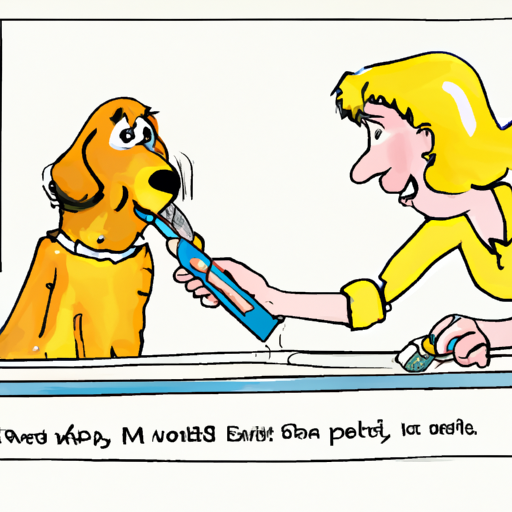Understanding the Importance of Dental Care for Dogs
Just like in humans, dental health plays a crucial role in your dog’s overall well-being. Poor oral hygiene can lead to gum disease, tooth loss, and even heart disease. As a caregiver, your role extends beyond providing food and shelter; it also encompasses ensuring the overall health of your furry friend, and that includes dental care.
Consider the following statistics:
| Dental Issue | Percentage of Dogs Affected |
|---|---|
| Gum Disease | 80% by age 2 |
| Tooth Decay | 10% of dogs |
| Tooth Loss | 20% of dogs over age 5 |
As grim as these figures may sound, the good news is that these dental issues can be prevented with regular brushing of your dog’s teeth.
Preparing to Brush Your Dog’s Teeth
Brushing your dog’s teeth might seem like a daunting task, especially if you’ve never done it before. However, with a little preparation, the process can be made much smoother. Here are some steps to help you prepare:
-
Choose the right tools. Dog toothbrushes and toothpaste are specifically designed to cater to their needs. Never use human toothpaste as it contains ingredients that can be harmful to dogs.
-
Acclimate your dog to the brushing process. Start by touching your dog’s mouth and teeth gently. Let them taste the toothpaste before you start brushing.
-
Pick the right time. Choose a calm and quiet time when your dog is relaxed, ideally after a good meal or rigorous play.
The Proper Technique for Brushing Your Dog’s Teeth
Brushing your dog’s teeth is not as straightforward as brushing ours. Here’s the right way to do it:
-
Lift your dog’s upper lip gently and begin brushing in a circular motion. Don’t forget the back molars, they are prone to plaque build-up.
-
Brush the lower teeth in a similar fashion. Be gentle, you don’t want to hurt your dog’s gums.
-
Reward your dog with a treat after each successful brushing session to create positive associations.
Maintaining Your Dog’s Dental Health
Apart from regular brushing, here are other ways to ensure your dog’s dental health:
-
Regular Vet Check-ups. Your vet can identify potential dental issues before they become serious.
-
Healthy Diet. Provide a balanced diet that includes dental-friendly foods.
-
Dental Toys and Treats. Chewing on these can help clean your dog’s teeth naturally.
FAQs
Q: How often should I brush my dog’s teeth?
A: Ideally, you should brush your dog’s teeth daily. However, if that’s not feasible, aim for at least three times a week.
Q: Can I use human toothpaste for my dog?
A: No. Human toothpaste contains ingredients that are harmful to dogs.
Q: My dog resists when I try to brush their teeth. What should I do?
A: Be patient and go slow. Start by letting them taste the toothpaste and gradually introduce the brush. Reward them after each session to create positive associations.
In conclusion, brushing your dog’s teeth is an essential part of their overall health care. As a caregiver, it might take some time and patience, but the long-term benefits for your furry friend are worth the effort.



